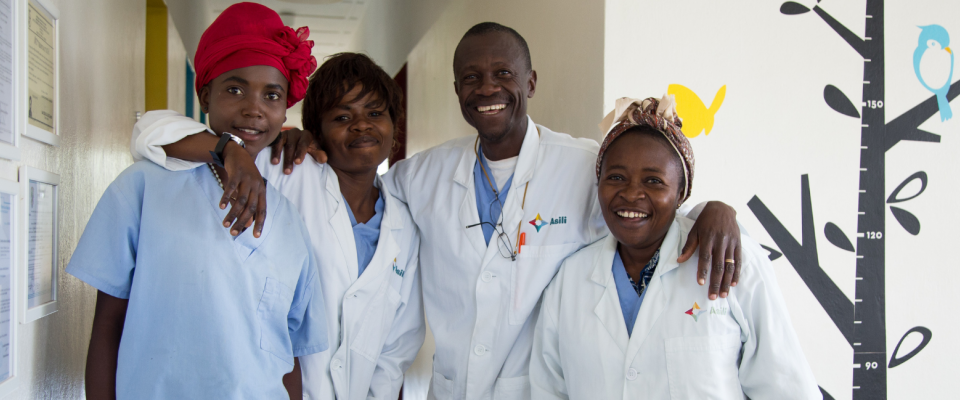- Who We Are
- Mission, Vision and Values
- Organization
- Leadership
- Office of the Administrator
- USAID at 60
- Bureaus
- Africa
- Asia
- Europe and Eurasia
- Latin America and the Caribbean
- Middle East
- Bureau for Development, Democracy, and Innovation (DDI)
- Bureau for Resilience and Food Security
- Global Health
- Legislative and Public Affairs
- Management
- Policy, Planning and Learning
- Foreign Assistance
- Bureau for Conflict Prevention and Stabilization
- Bureau for Humanitarian Assistance (BHA)
- Center of Excellence on Democracy, Human Rights and Governance
- Office Of Economic Policy
- Office of American Schools and Hospitals Abroad
- Office of Education
- Office of Energy & Infrastructure
- Office of Food for Peace
- Office of Forestry and Biodiversity
- Office of Gender Equality & Women’s Empowerment
- Office of Global Climate Change
- Office of Land and Urban
- Office of Local Sustainability
- Office of Private Capital and Microenterprise
- Office of Program, Policy, and Management
- Office of Trade & Regulatory Reform
- Office of U.S. Foreign Disaster Assistance
- Office of Water
- Independent Offices
- Mission Directory
- Advisory Committee
- Board for International Food and Agricultural Development
- Mission Directors
- Coordinators
- USAID History
- Operational Policy (ADS)
- Transparency
- Resource Portal
- The Journey to Self-Reliance
Strengthening USAID’s ability to partner with non-traditional and diverse actors.
Partnerships are at the core of USAID’s work. That’s why USAID is finding ways to strengthen, expand, and diversify its partner base. The Local, Faith and Transformative (LFT) Partnerships Hub is leading the Agency’s work in this space.
The LFT Hub is strengthening USAID’s ability to partner with nontraditional and diverse actors, including local, faith-based, and community organizations; schools and hospitals; minority-serving institutions; foundations; diaspora communities; cooperatives; and volunteer organizations. Through the following programs, initiatives, and opportunities, USAID is harnessing the power of partnerships to advance sustainable, inclusive development and public diplomacy.
American Schools and Hospitals Abroad
American Schools and Hospitals Abroad (ASHA) supports educational and medical institutions through partnerships between U.S. organizations and overseas institutions. Founded in 1947, ASHA predates USAID and has a unique public diplomacy mandate. Since its inception, ASHA has achieved a visible legacy by providing assistance to approximately 300 institutions globally and aiding in the development of innovative and state-of-the-art schools, libraries, and medical centers in countries around the world. The Limited Excess Property Program (LEPP) provides Private Voluntary Organizations (PVOs) and USAID Missions with access to federal surplus property to support their humanitarian and development projects abroad. LEPP is managed by ASHA. Click the links below to learn more:
Center for Faith and Opportunity Initiatives
The Center for Faith and Opportunity Initiatives (CFOI) serves as a bridge to faith and community-based organizations, providing resources on how to work with USAID and connecting them with relevant Agency teams. CFOI also aims to strengthen USAID’s capacity to partner with these organizations by developing resources for USAID staff on how to collaborate with religious communities and partner with faith-based groups.
Locally Led Development Initiatives
Through the Locally Led Development Initiatives (LLD), USAID is strengthening its ability to collaborate directly with local stakeholders and to work with new and underutilized local partners. Click the links below to learn more:
- Cooperative Development Program (CDP)
- Local Works
- Locally Led Development Research (LLD Research)
- Locally Led Development Annual Program Statement (APS)
- Unsolicited Solutions for Locally Led Development (US4LLD)
- New Partnerships Initiative (NPI)
- Small Project Assistance Program (SPA)
Minority-Serving Institutions
USAID conducts outreach to Minority-Serving Institutions (MSI), including Historically Black Colleges and Universities, Hispanic Serving Institutions, and institutions serving indigenous Americans, to raise awareness of USAID partnership opportunities, while working internally to enhance solicitations and activities to increase MSI participation in USAID programs.
Connect with Us
For news and program updates, subscribe to the LFT Hub newsletters:





Comment
Make a general inquiry or suggest an improvement.